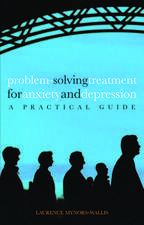Silent Partners: Human Subjects and Research Ethics
Autor Rebecca Dresseren Limba Engleză Hardback – 24 noi 2016
| Toate formatele și edițiile | Preț | Express |
|---|---|---|
| Paperback (1) | 283.16 lei 31-38 zile | |
| Oxford University Press – 22 noi 2018 | 283.16 lei 31-38 zile | |
| Hardback (1) | 419.82 lei 10-17 zile | |
| Oxford University Press – 24 noi 2016 | 419.82 lei 10-17 zile |
Preț: 419.82 lei
Preț vechi: 518.83 lei
-19% Nou
Puncte Express: 630
Preț estimativ în valută:
80.33€ • 83.87$ • 66.49£
80.33€ • 83.87$ • 66.49£
Carte disponibilă
Livrare economică 03-10 martie
Preluare comenzi: 021 569.72.76
Specificații
ISBN-13: 9780190459277
ISBN-10: 0190459271
Pagini: 320
Dimensiuni: 216 x 145 x 31 mm
Greutate: 0.48 kg
Editura: Oxford University Press
Colecția OUP USA
Locul publicării:New York, United States
ISBN-10: 0190459271
Pagini: 320
Dimensiuni: 216 x 145 x 31 mm
Greutate: 0.48 kg
Editura: Oxford University Press
Colecția OUP USA
Locul publicării:New York, United States
Recenzii
Some omissions are so obvious it takes a special person to see them. An authority on medical ethics and someone who has suffered and recovered from a serious illness, no one is in a better position than Rebecca Dresser to identify the absence of the research subject's voice in clinical trials. Her sometimes painfully honest and always intellectually acute analysis opens up a new conversation about the way we conduct human experiments.
Much scholarly writing seems like a bare tree festooned with strings of citations. Dresser's argument flows on its own, and the reader can travel on its currents; the references help guide the flowwithout demanding notice. What this accomplishes is straightforward: it makes the book accessible and potentially interesting to many audiences, from institutional review board (IRB) reading groups to students at many levels to clinicians learning to be investigators.
Much scholarly writing seems like a bare tree festooned with strings of citations. Dresser's argument flows on its own, and the reader can travel on its currents; the references help guide the flowwithout demanding notice. What this accomplishes is straightforward: it makes the book accessible and potentially interesting to many audiences, from institutional review board (IRB) reading groups to students at many levels to clinicians learning to be investigators.
Notă biografică
Rebecca Dresser has taught medical and law students about legal and ethical issues in biomedical research, end-of-life care, genetics, and related topics since 1983. From 2002-2009, she was a member of the President's Council on Bioethics and from 2011-2015, a member of the National Institutes of Health Recombinant DNA Advisory Committee. She is the author of When Science Offers Salvation (2001), editor of Malignant (2012), and co-editor of The Human Use of Animals (1998, 2nd ed. 2008) all published by Oxford University Press.











